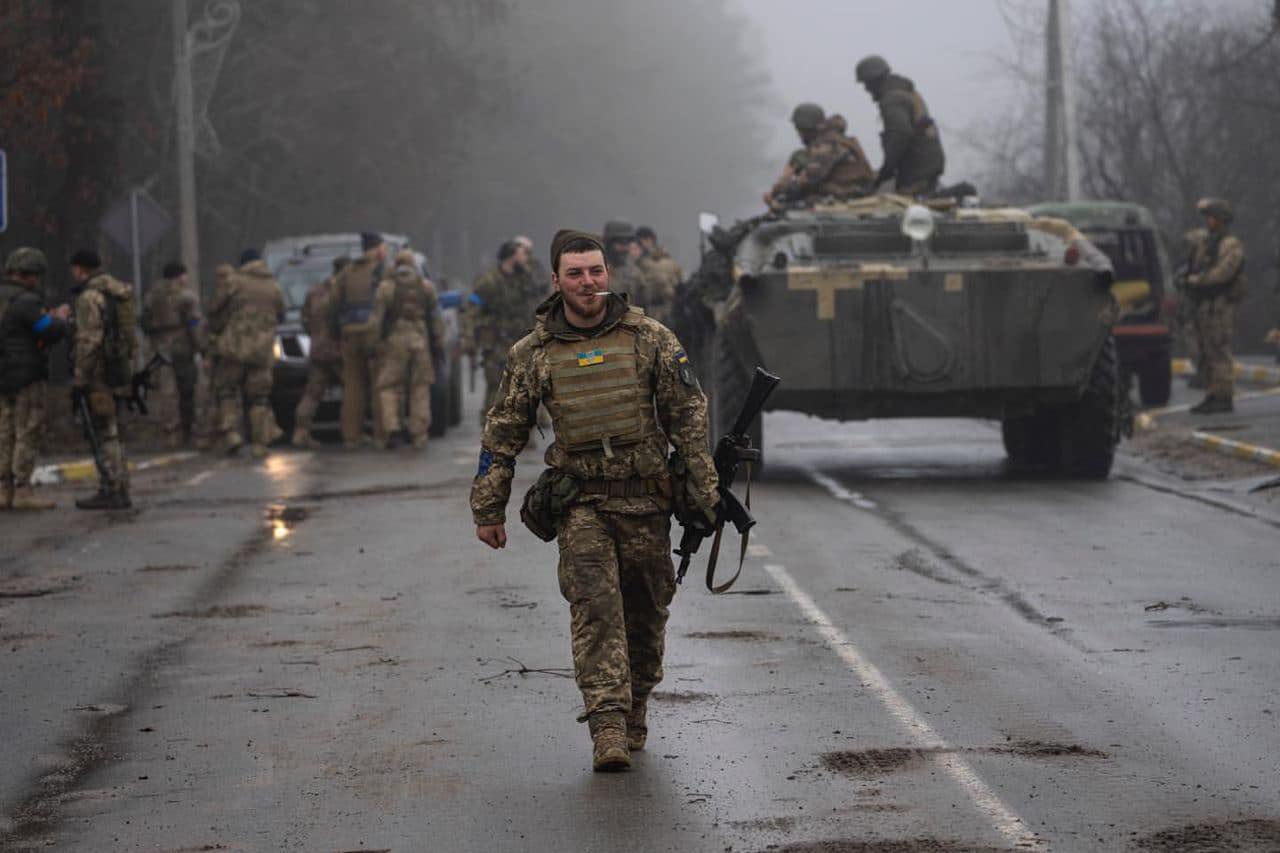“putin planned to capture Kyiv in three days. He didn’t thought he got to fight in other regions”
Oleg Bazar: When did you finally understand that there would be a great war?
We were ready for any developments as the war had been going on since 2014. In fact, we were already at war. It was clear that putin was facing a dead end with regard to the temporarily occupied territories and, by the way, with regard to Crimea. It is clear that the situation has already reached the limit - when he has certain powers, certain age and certain resource. So, he had to untie that knot. And the question was how he would do it, there have been different scenarios. Including a full-scale war.
O.B.: But when did you realize that this is it - russian troops will cross the border? When exactly did the illusions that the conflict can be resolved diplomatically disappear?
There were no illusions, there were discussions and different views regarding the scale. It was clear that he would somehow try to solve this problem, as the Minsk process has actually hit a dead end and something had to be done to move on. And it was clear that there was only one way out for him - to move on. There were discussions about whether missiles will target Kyiv or not, and the main discussions were for what? We understood that our army has many advantages. Despite the number of russians, we have fought against them for eight years, and our army has hardened in the battles. Besides, our army has had many interoperability trainings and various international exercises. In most aspects [our army] switched to NATO standards. Therefore, we understood that for him (putin - LB.ua) this is a losing situation, and, perhaps, this will be the last of his possible scenarios, because he understands that this is a losing situation. But, obviously, he underestimated it, and the resistance we see is the result of our readiness.
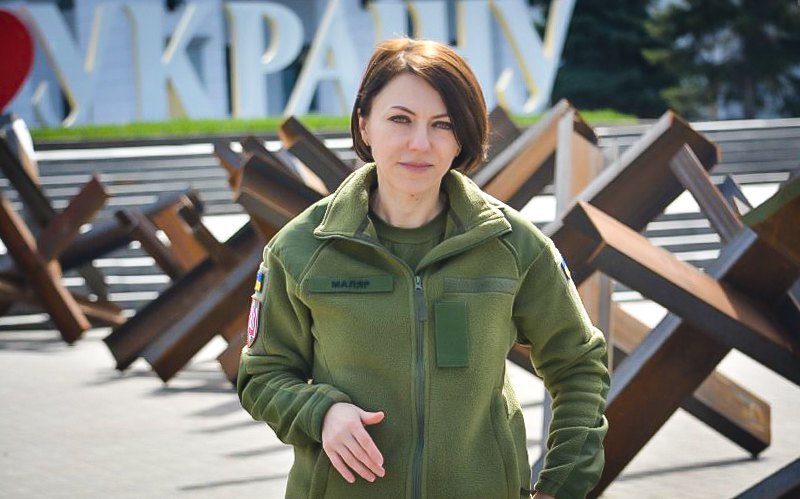
Sonya Koshkina: You said that the first 72 hours of the war were the hardest. The russians had a plan to capture Kyiv in three days, which they failed. Please tell us exactly what happened in those first, most difficult three days?
At 5 a.m., of course, there was an instant call to work, for all. And indeed, since 24 February, for many days in a row, the entire military command could not go anywhere. They were in a certain place, let's call it a command post, and managed the whole process. Why? Because putin expected to seize Kyiv in the first three days, a week at most, to physically capture power. He believed that this way he would not need to fight in other regions. We saw that at the time, he did not even pull troops to Mariupol, for instance.
The most elite Russian units were clustered in Kyiv Region, around Kyiv in those days and there was an expectation that they would do their job in a trice. The defence of Kyiv became, in fact, a historic milestone in this war, because we all knew that if Kyiv were captured, there would be no Ukraine in principle. And, that all of the government officials on that "shooting list" will be killed.
S.K.: Yes. Actually, this is exactly why I had to leave.
We know about these plans. They have developed special operations targeting many people in our country and they do not abandon these plans. That is, there are sleeping saboteurs, we shoul all be aware of that.
But at that moment it was clear that the whole state was at stake, and the Russians' main goal was to capture Kyiv. And these battles were the hardest. Indeed, it was very difficult to comprehend, both psychologically and emotionally, that Kyiv Region is a front line.
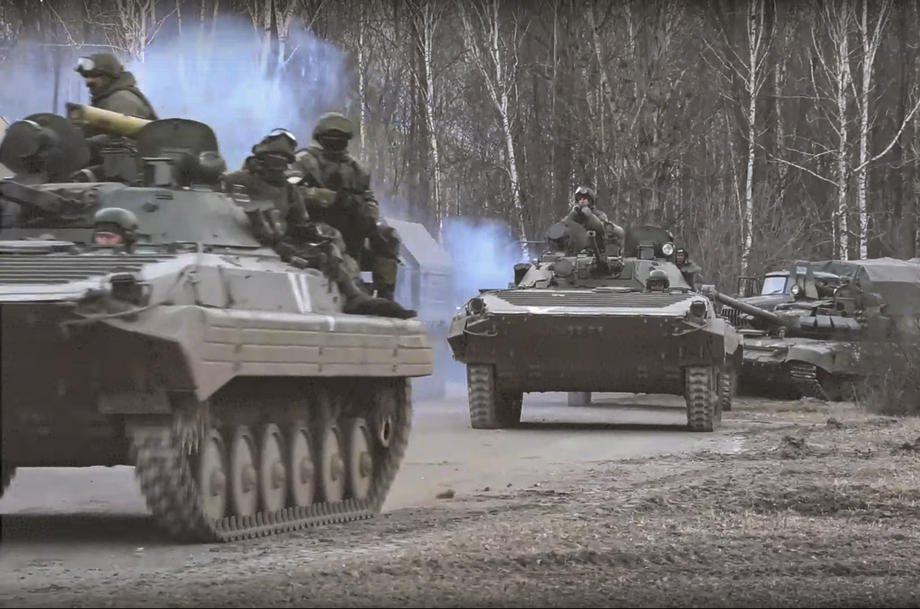
These were the most difficult emotional moments because the balance of power was not clear until the end. That is, we understood that there are more of them, they are stronger, and who has the advantage, the situation was changing with every minute. There was no moment to sit down, relax, drink tea, [hard] to understand: well, do we have at least an hour, right? We didn’t have that. During the first four days, no-one in the command had any sleep, to be clear: no-one went to bed at all. To give you a good picture, I am talking about four days.
O.B.: How did you hold on?
[Because we understood] that whose were crucial battles, decisive hours, decisive days, to put it correctly.
O.B.: I understand that. Purely technical, practical moment. Did you drink gallons of coffee, energy drinks, or something else to hold on?
No.
O.B.: Adrenaline?
It's adrenaline, it's incredible euphoria and commitment to defend your country. We were driven by an understandable anger at the enemy. I remember drinking tea, I remember eating something, food. There was a certain strategic stock of things like that, it wasn't restaurant food, no, it was modest, even very modest.
And during these first four days no-one in the command slept at all. Then it was two hours a day, then four. Now - I am revealing a secret - we do it in turns. For example, while someone gets two hours of rest, another one is at work, receiving all the information. But during the first four days everything was done on this adrenaline.
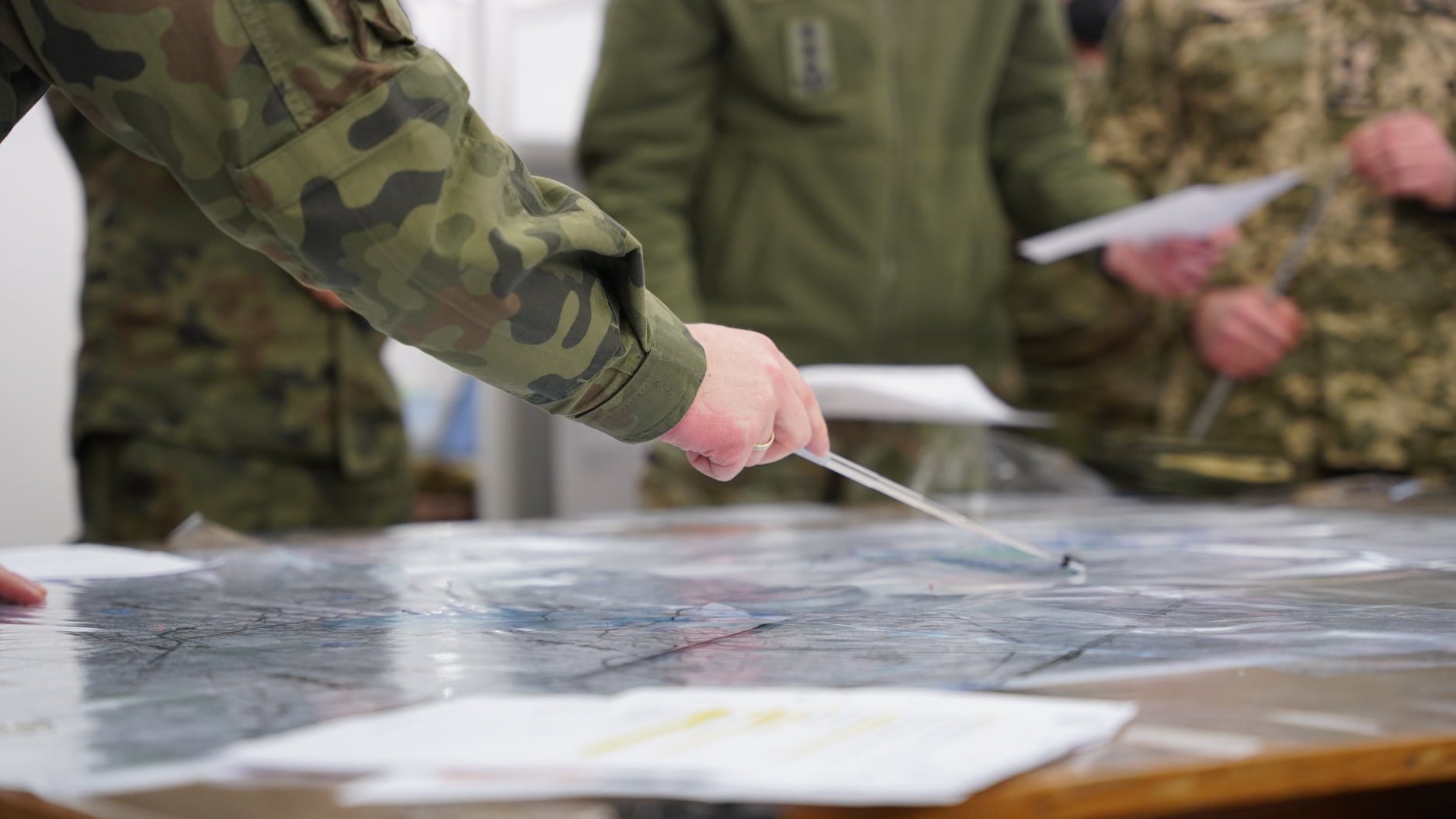
Now, is important to mention, that at that time I received a lot of calls and letters from people who thought they saw the enemy and that the HQ did not see that there were tanks somewhere or something else. I would like to take this opportunity to say that there is no other unit that is as informed as the General Staff and the Commander-in-Chief. In fact, all the information that people collect, and that professional intelligence gathers, and that satellites see - everything is collected by a single information centre, all this [data] is processed. And believe me, we got all the information there.
To make it clear, combat data management is a huge analytical process. First of all, it involves collection of information and understanding of the strategy - where the enemy is heading, what its goal is, what our forces and means are, how we can use them, because our forces and means are much more modest than the enemy's - this is open information. Intellectual strategies were used during the defence of Kyiv and Kyiv Region, which means we won thanks to our intellect and coordination.
O.B.: You said that there are a lot of sabotage and reconnaissance groups, saboteurs, these hibernating groups. We understood that something like this could happen. Why has Ukraine not imposed an entry ban on citizens of the russian federation? These are mostly citizens of the Russian Federation, right?
There are different people. You know that there are accomplices of the enemy among our citizens as well. Indeed, there are many lessons to be learned from this situation. In particular, there should have been a full ban on russians' entry during the war since 2014. But the russians used the fact that there were many family ties, a lot of common past, and it was a public opinion that there should be at least some contacts and that they can visit. And the lack of such tough decisions became evident.
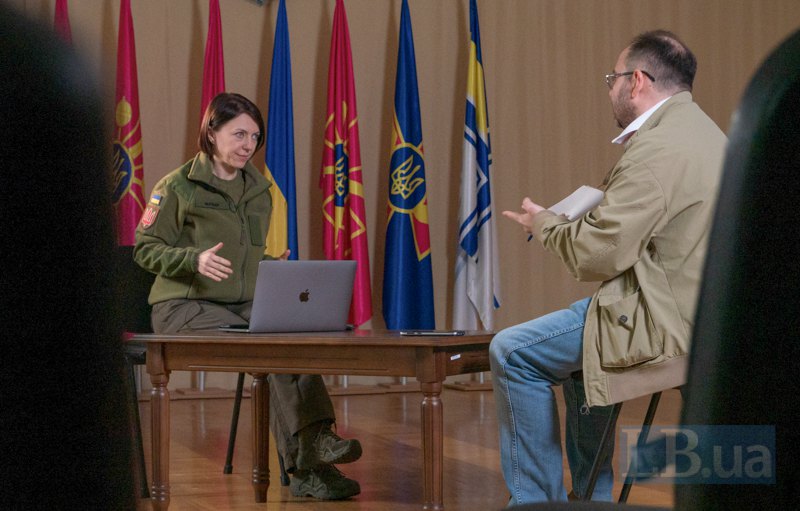
And this not only applies to Ukraine's decisions, it also concerns the decisions of Western countries, which until recently, until 24 February, had professed a policy that "putin should not be irritated". When we realized that the situation was growing tense, we at the Ministry of Defence,had a lot of meetings with our foreign partners, and we kept talking about what help we needed and what needs to be done to restrain the russian federation. And they all underestimated the situation, everyone underestimated.
O.B.: First of all, they underestimated us. They predicted that Ukraine would not last more than 72 hours.
It is absolutely true, they did assess [the situation] that way, and I have already thought about why this happened, why they underestimated us. Most likely, this is a mismatch of our external manifestations. That is, we are assessed from the outside as a country that is still rebuilding a democracy, that we may have corruption. That is why such a country perhaps cannot face up to such a strong enemy. But, this is our real DNA, no-one has taken it into account that Ukrainians are ready to sacrifice their lives for the sake of freedom. This is something that is difficult to understand.
"russians have always had an inner sense of superiority, and that, in fact, did them a disservice."
O.B.: Our Commander-in-Chief Gen Valeriy Zaluzhnyy compared the Russian army's level today to what we were in early 2014. That is, the army in roughly the same condition, with outdated notions of war and with a very rigid vertical is quite ineffective. Now the military says the Russians have begun to change. What changes do you see? What changes does the Ministry of Defence observe in their tactics and strategies?
They always had an inner sense of superiority and that, in fact, did them a disservice. Because they consider themselves older brothers, they were convinced that everything about them should be better, stronger, faster. Meanwhile, we hardened in battles against them and trained our Armed Forces. Indeed, they relied on the number, in addition - on the elite units that were sent to Kyiv Region - and on weapons. After all, they have a significant number of personnel and weapons, and this is what they relied upon.
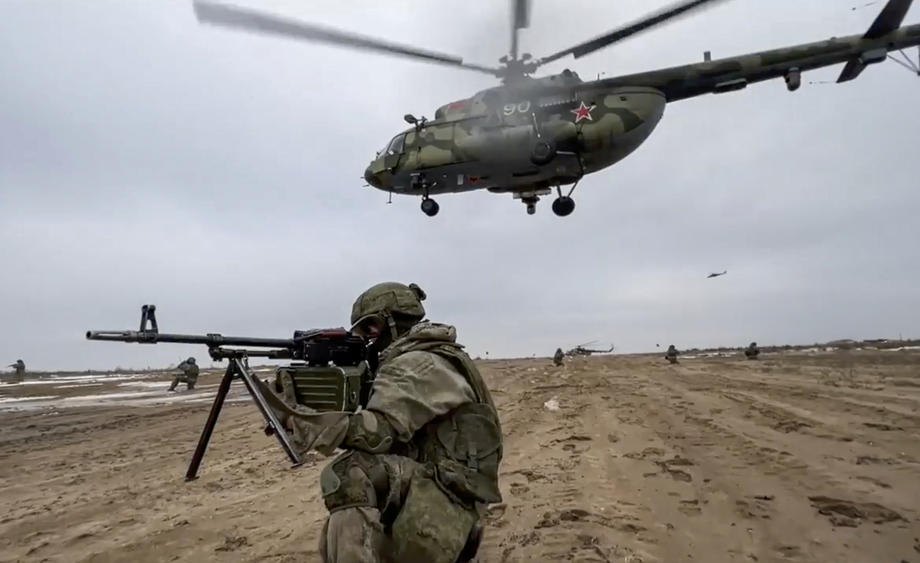
S.K.: Pardon me, did russia have more weapons or does it still have? Because there is information from Western intelligence that after the losses suffered by the russians in Ukraine, it will be very difficult for them to recover. Especially after the imposed sanctions.
This is not an instant process. It does not mean that if sanctions are imposed today, tomorrow there will be no spare parts, or if we destroyed the ammunition, tomorrow there would be nothing to replace it with. They also have a certain reserve, most likely, this reserve will last for several months. If we talk about spare parts on which sanctions have been imposed, they really will not be able to receive certain components. Though they still have a reserve for several months under the old contracts. Therefore, they can recover.
As for missiles, they still have their own manufacturing. Of course, they will not be replenished as fast as they are fired, it will take several years, but they are still restocking.
O.B.: Are you really sure their stock is enough for months, not years?
Obviously, they seek to replenish everything as soon as possible. You see, they have been arming up since 1991. While we were disarming, they were stocking up weapons. And they collected hardware from everywhere, from all over the Soviet Union, and they have something to fight for, it must be understood. But in war not only ordinary force works, in war strategies work as well. And the fact that our military has these strategies, in fact, is saving us now.
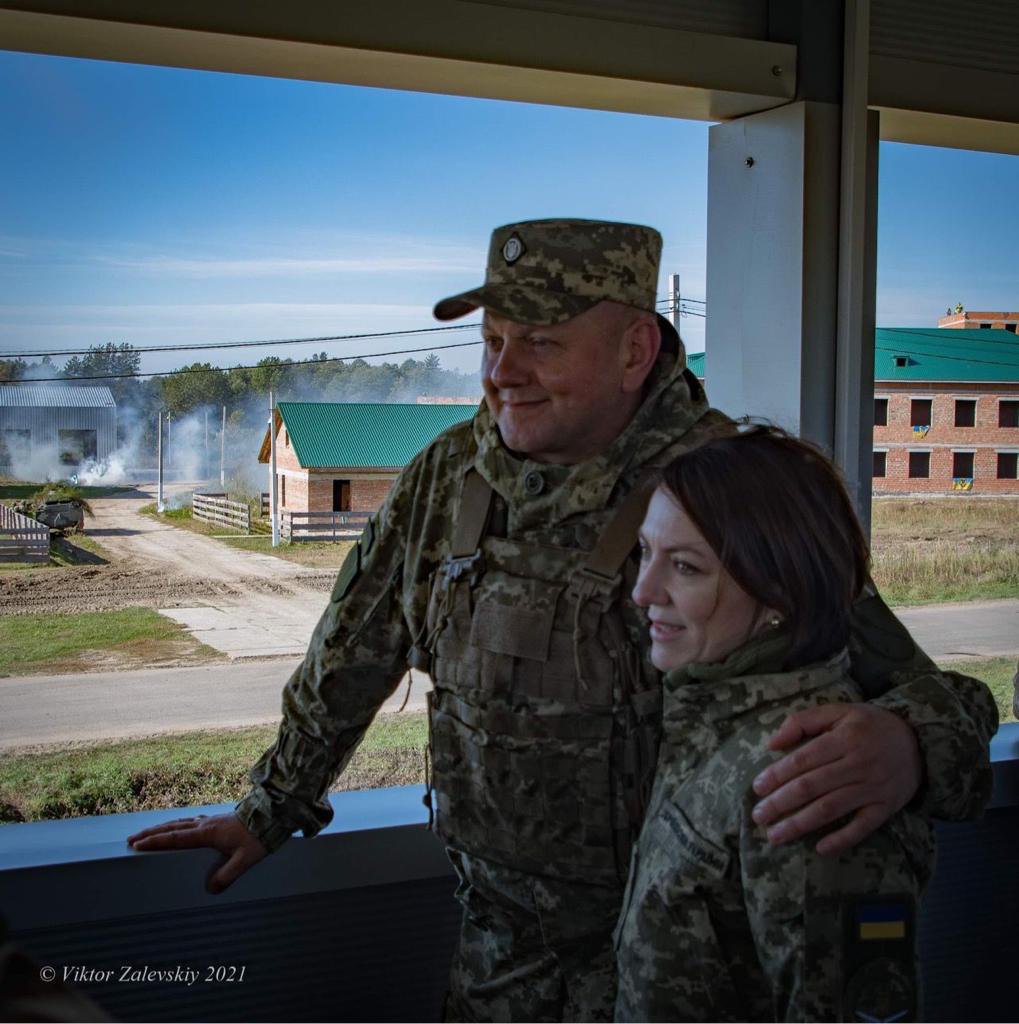
O.B.: Did the russians start changing their tactics?
You remember that we had a certain period, it was even called a kind of lull, when the intensity of the fighting allegedly decreased a little. They took a break because they needed to replenish personnel due to huge losses at the beginning, they needed to restore equipment, to regroup. But at the same time, they used this time to change their strategies and adjust to us. They analysed how we do it, what gave us an unexpected advantage, and began to look for our weaknesses.
Now we actually see two different tactics. The first is like in Mariupol, they just bomb. There is no tactics. But there are some regions where they are trying to play chess with us, where they are also already trying to calculate what we will do next, and what will be the next move. We see that now they have these well-thought decisions, which did not exist in the beginning.
"Let's recall the situation on the Polish-Belarusian border. Did the EU border stop him? It didn't."
S.K.: A quote from your interview with colleagues from NV: "They are razing Ukrainian cities to the ground. They are not interested in Ukrainian infrastructure. This means they are solving another task. I can say by the nature of destruction that they are planning to use this area to move further." Now we are talking about Moldova. And you have also noted that the preparation of airfields in the area of Tiraspol is being observed. But it is obvious that Moldova is clearly not the ultimate goal. And what is Putin's ultimate goal?
He has been preparing for this war for many years, and he has satellite territories that he can use. Some of our territories are temporarily occupied. We have Georgia as a victim, we have Moldova as a victim. He is constantly interfering in the relations between Armenia and Azerbaijan, and for him these are important points where he can influence their politics and use them.
The easiest for him is to use Belarus today. In fact, today Belarus is involved in an international crime because a state that provides its territory for aggression automatically becomes an accomplice in this crime. And there is a truly high risk that the territory of Moldova, the Dniester region, can be used too. He (putin - LB.ua) keeps it for himself as a reserve territory from which he can later do anything he pleases. Therefore, this risk is high, everyone understands this.
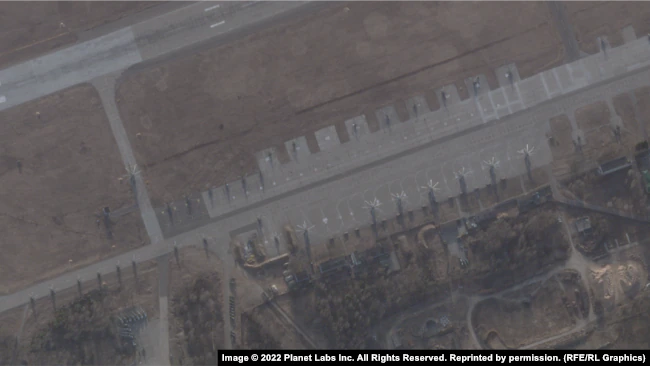
S.K.: And what is the ultimate goal? The Baltic countries, the whole of Europe? What does he want?
O.B.: When you say that he is not going to stop in Ukraine, and that is why he is destroying our infrastructure, it is obvious that the next step is the Baltic countries or Poland.
We are trying to analyse in terms of common sense, logic, and we have done so before. It seemed obvious to us: he will lose, why would he get involved, it will not be that easy. He has a different logic, I guess. The ambitions have formed in a man who has been in power for decades, he feels like a leader of the world, not only the leader of the russian federation... And he sees it differently, most likely, he feels the strength to move forward. The fact that he called the collapse of the Soviet Union a geopolitical catastrophe shows that it is a personal matter for him, and it is a kind of personal ambition. Therefore, it carries a risk for all former Soviet republics. But let's also recall the situation on the Polish-Belarusian border. Did the EU border stop him? It did not. So he can get involved in anything.
O.B.: Or is putin destroying Ukraine's infrastructure because he understands that Russia will not be able to take control of its territory, so he is inflicting maximum damage to push us back economically for decades?
Well, this is their favorite phrase "so no-one can have you [if we can't]". It is a possibility. There was a version that he reacted emotionally: if he can't capture something, he will annihilate it.
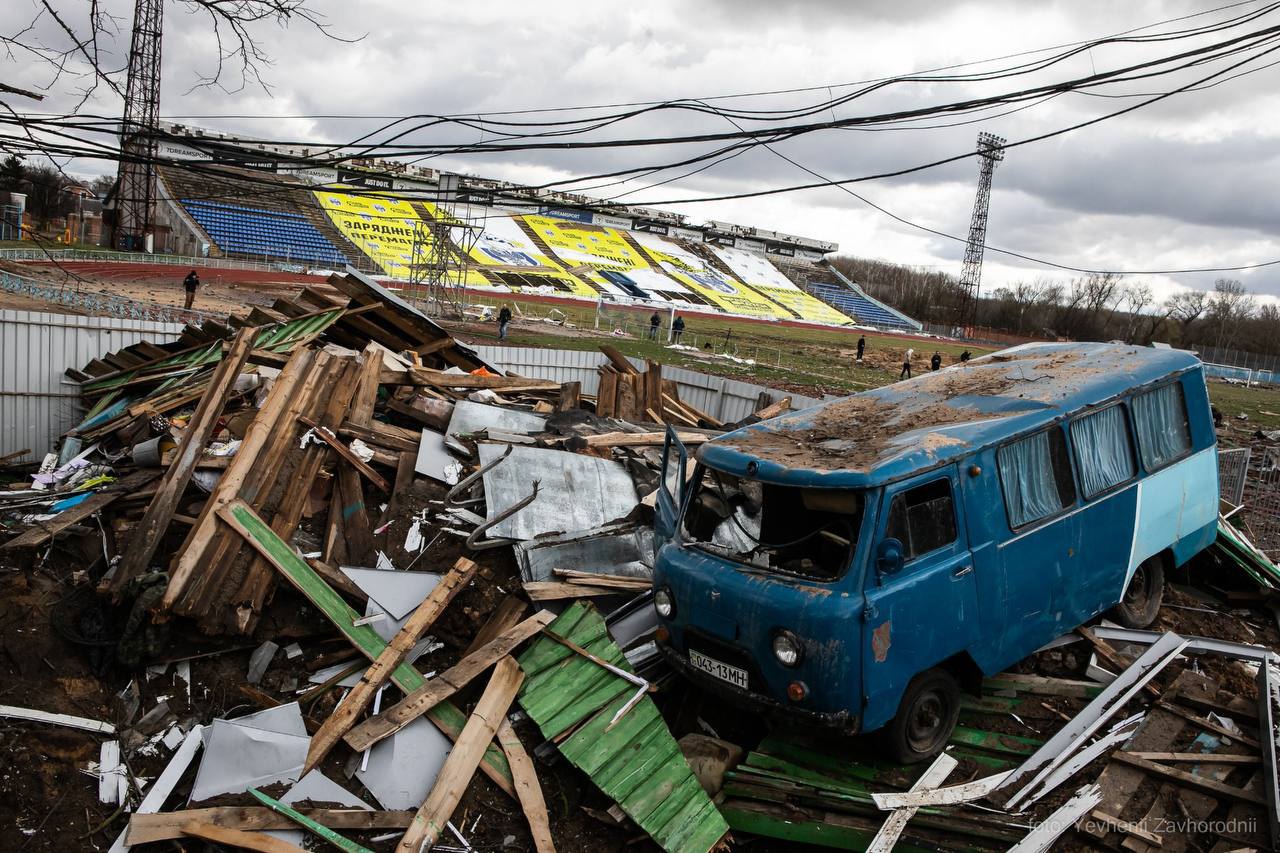
O.B.: This is not an emotion, this is pure pragmatism. The country's industry is destroyed, infrastructure is destroyed, the country will be rebuilding for decades, it will not be able to resist normally.
Please note that we are discussing that his goal is probably to destroy, wipe Ukraine off the face of the Earth, to reject it forever in the economic and political sense. But we are not alone in this world - russia and Ukraine. For him, this will be a simple signal: if I was able to destroy, wipe out 42 million people in Europe, and no-one in the world stopped me, it means that I intimidated them even more, and we can move on.
In wars, the psychological moment is very important. This blackmail with nuclear weapons, it's just a game of scare to prevent anyone from doing something. And when he is destroying Ukraine - this is a very important psychological campaign for him - he intimidates others.
S.K.: Do you think he is really not ready to use nuclear weapons? I understand that this is a very primitive question, but it worries many.
We are considering all the scenarios. Neither chemical nor nuclear can be ruled out.
S.K.: In general, how is the army managed in russia? Who develops the strategy? Who makes the final decision? Is putin directly involved in this?
From a military point of view, these are not my words, it is clear that I communicate with our military and hear from them: there were indeed some decisions that did not come from the military. And from this we can conclude that he makes some decisions on his own and contrary to what he is advised by the military. He is in such a position where the destruction of the psyche has probably taken place for a long time, and this unlimited power has led to the fact that a person believes that he has full competence in all matters. That is why some decisions are bad and contrary to military strategies. This is probably his decision.
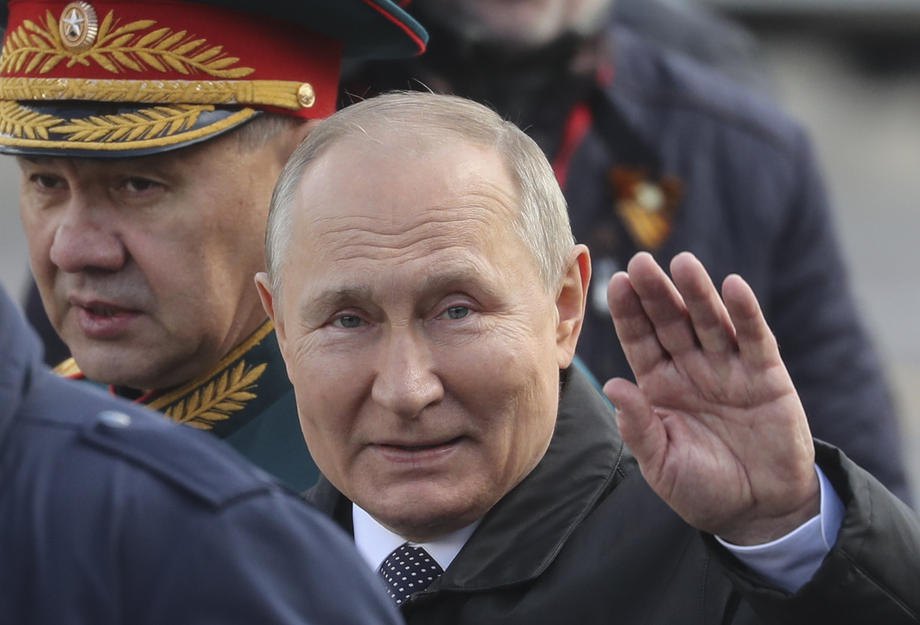
"Our Armed Forces sometimes were in a situation when the ratio was 1:15 not in our favour - you must understand the cost of victories and deterrence"
O.B.: You and the Ministry of Defence in general and the General Staff are very restrained in their forecasts. But, still, is there any approximate idea when a certain turning point in the war is possible? We saw the first such breakthrough when the russians withdrew from northern Ukraine. Now what do we expect and when?
I will explain why they are restrained. And now I will also be restrained because any of my words will be perceived as the official position of the ministry, including by our enemy, which uses every piece of information, including from open sources, to adjust its plans.
We are constantly asked why we did not send help to a certain unit in a certain region. It doesn't matter what answer we'll give. If we say that we did not send it, it is a signal to the enemy that there are no contacts [with the unit], everything is going well then. If we say: no, wait a minute, help is coming, for them it means that they overlooked something, that somewhere there is a channel through which the help is coming.
The same goes for strategy. Any answer will mean that there is a plan. It is clear that there is a plan, but it will be seen as a reason to adjust their actions. The only thing that can be said is that this is a very difficult struggle underway, that our Armed Forces sometimes were in a situation when the ratio was 1:15 not in our favour - you must understand the cost of victories and deterrence.
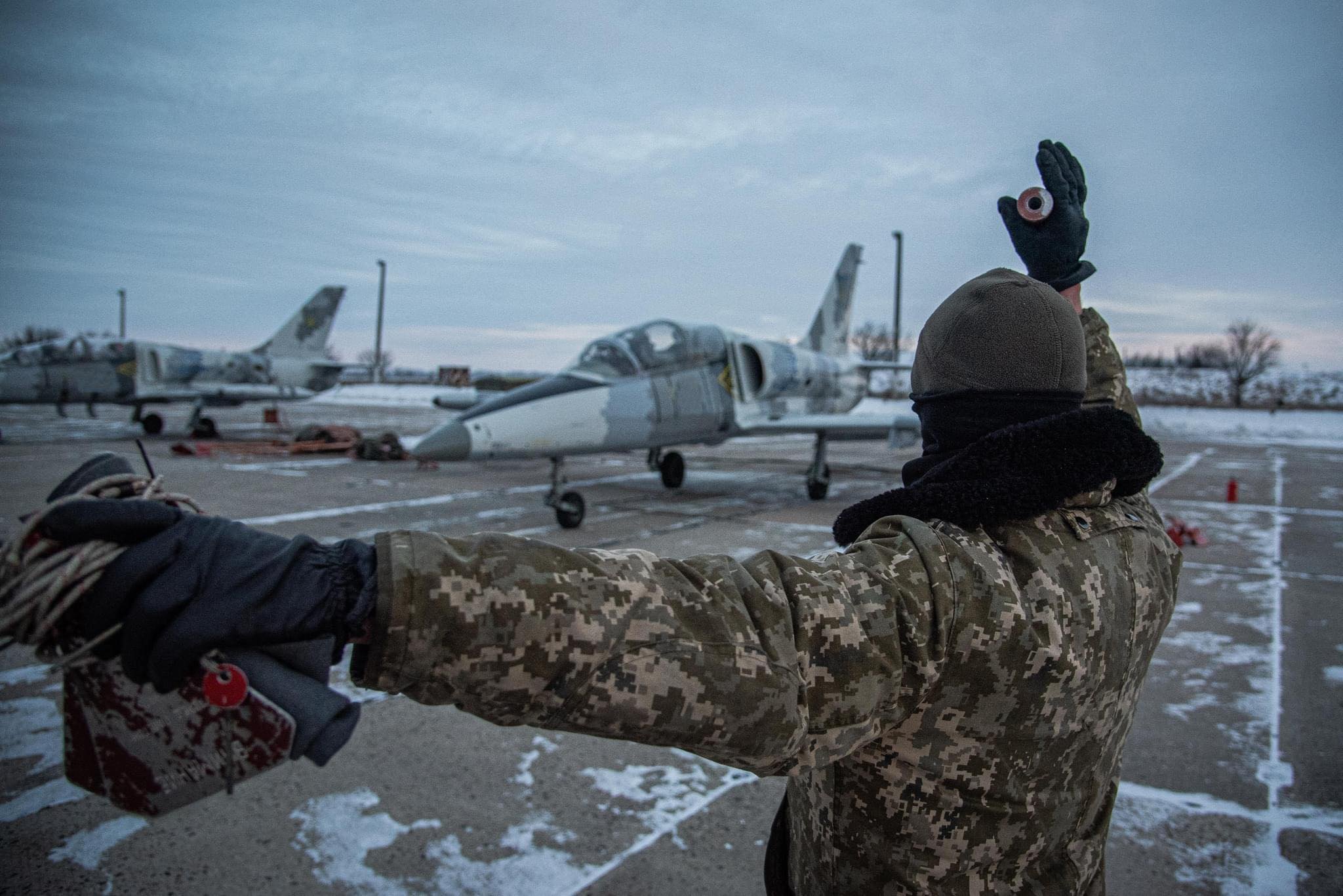
Besides, there are temporarily occupied territories now, so not everything is so simple. And every day the situation changes. Therefore, it is incorrect to say what will happen in a week or three. If someone tells you exactly what will happen, he is incompetent.
We can say that in the long run russia clearly has no place in this world in its current shape. And even the existence of such a state is a spit in the face of the whole Western world. That's right, this is another strategy, this can be considered.
O.B.: After the meeting in Ramstein, Oleksiy Reznikov said that a coalition was formed there whose purpose is not just to help Ukraine to defend itself, but to help Ukraine to win. Are we already feeling the practical effect of this coalition?
Yes. I must say that behind the scenes there is a huge or titanic work of the Ministry of Defence, including the Minister. Because the Ministry coordinates all the help and all the contacts that we have with our Western partners. The Armed Forces are fighting, the rest is being done by the minister and his deputies. And this is being done around the clock, by the way, without sleep and in euphoria to help our country. And these results cannot be expected in a single day. Several weeks have passed, but these results are enormous. Now, it will be very noticeable in the coming weeks.
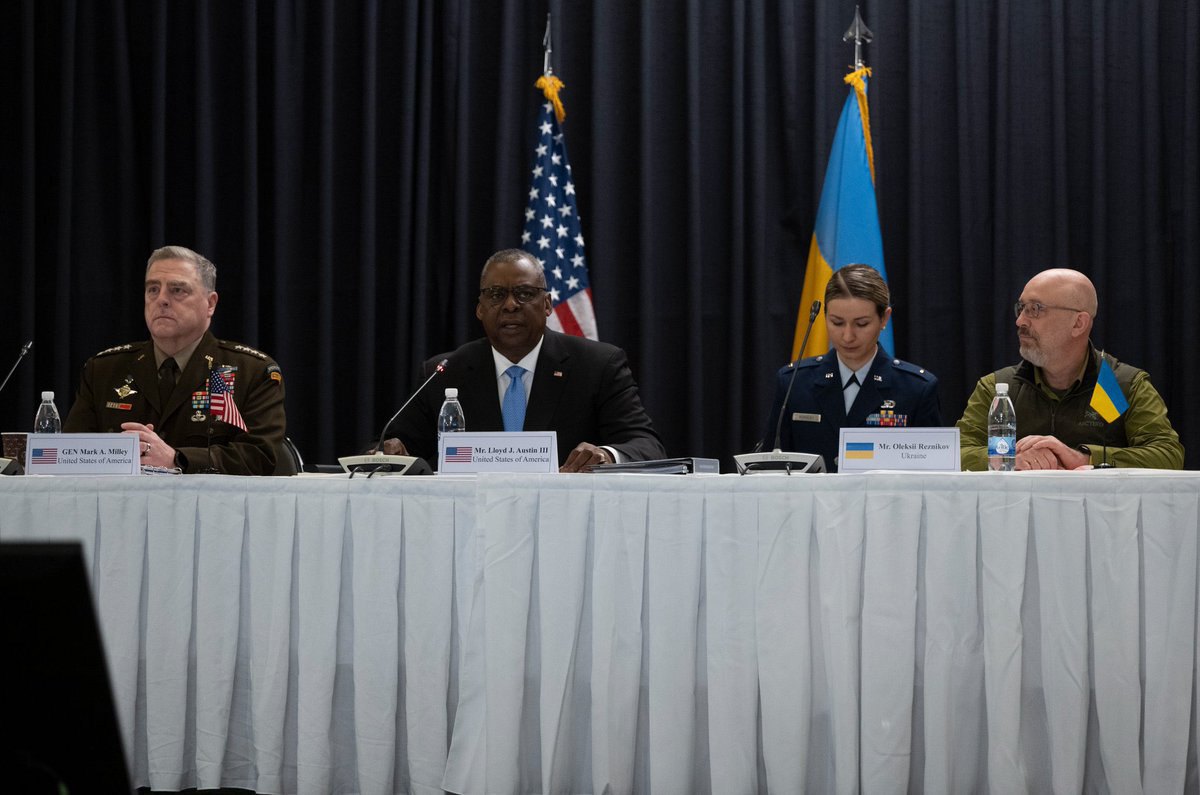
O.B.: Can you say without detailing whether we are already getting what we need, or is there still some delay between what we need and what we are given?
There is a certain delay due to the processes because the supply of weapons is a complex process. To put it simply, this is not production, this is not baking bread, when you can bake thousands every day, no. These are certain contracts that were concluded by other countries before our war. And those suppliers who can give us something, they are obligated to give it to someone. And so we need to change this situation. This is for starters.
Then. There are goods such as jets, they are generally single, they are not produced on the scale we need. Then again, we need to understand that each state that provides us with assistance has its own minimum reserve which must be kept for its own security. And they weren’t prepared for the fact that at some point of time they will have to help Ukraine.
Therefore, it is a very difficult and painstaking job for the Minister and the Ministry of Defence to find the reserves and explain why they should be given to us now. All this work is being done while indeed, we still have problems with transit. russia is badly interfering in everything. In many countries, transit requires top-level decisions and russia, through its agents, is doing some tricks that we are successfully overcoming.
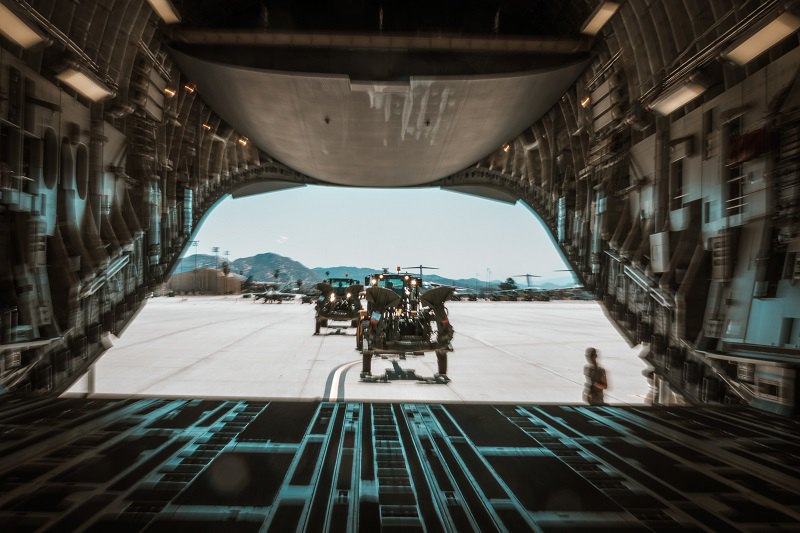
S.K.: It is clear that this flow of aid will sooner or later be interrupted. What will we do if the war drags on?
In fact, this is one of the reasons why it should be finished quickly, why it should not be allowed to stretch, expecting the parties to be exhausted. That is, there are different strategies. This strategy that everyone is tired, everyone will run out of resources, this is not the best strategy, this is a very risky strategy. And so yes, the war must end quickly, the war must end victoriously in favour of Ukraine, and the russian federation should be defeated as much as possible because it is a threat to the whole world. And, in the end, it is a signal to other dictators that this is possible. That is, if the whole world does not stop putin now, many will have their hands untied.
S.K.: Do you think putin will accept this defeat? That is, if he understands that everything is going to the point that russia simply lost ingloriously, the reaction may be completely unpredictable.
Yes, there is a risk. We saw it after Ramstein - the rockets went through the centre of Kyiv. We saw this emotional reaction. But, well, we must not be alone in this struggle, and we must look for ways to stop it.
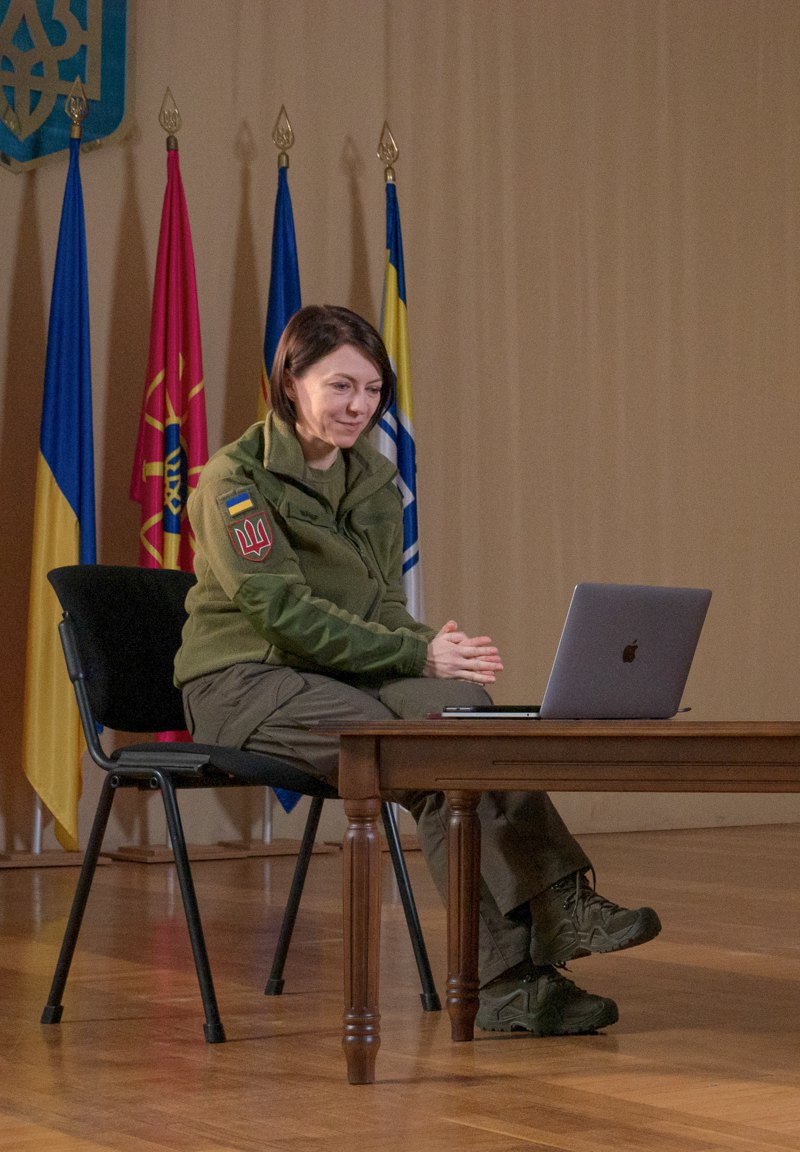
O.B.: Many military experts say that the russians will try to take an operational break at some point. They need it again to rebuild, replenish units and think about their next moves.
If the war is dragging on, and two months are already dragging on, then technological pauses are really needed by all troops, because the troops cannot attack indefinitely in one mode, if we are talking about it. Therefore, there will be these pauses, of course. But this is not a pause along the entire front line, it is fragmentary, that is, somewhere there is a regrouping, somewhere other troops are being brought, which are in the active phase, in active battles. And, in fact, now they are doing it. Therefore, one should not probably expect that there will be a pause and that this can be used somehow.
"Ukraine is doing a lot, doing everything possible to bring the territories back under our control"
O.B.: The russians are fortifying themselves in certain territories, in particular, in Kherson Region, in southern Ukraine, where the work on the creation of the so-called Kherson People's Republic or Kherson Province is currently underway. That is, in fact, a kind of clone of Luhansk/Donetsk PRs, where russian passports will be distributed, where the Russian rouble will introduced. And this is a huge problem for us because if we allow it, we will get another tumour with a risk of growing. Is there any way Ukraine can prevent this?
Ukraine is doing a lot, doing everything possible to bring these territories back under our control. I can only mention that our unit of the Special Operations Forces is engaged in this by law. Today, the fact that (russians - LB.ua) can not hold a referendum is not an accident. I can't tell you everything, but you may draw your conclusions. The facts are: today there are few traitors who are ready to head local communities, that it is not easy for them there, and some of them are no longer with us… There are the facts.
One cannot say that the situation there is out of control, that nothing is known, whether they are seized or not. We are at war and the rationale of defence, which includes special operations, is not a subject for videos or interviews, as this may affect the work that is being done.
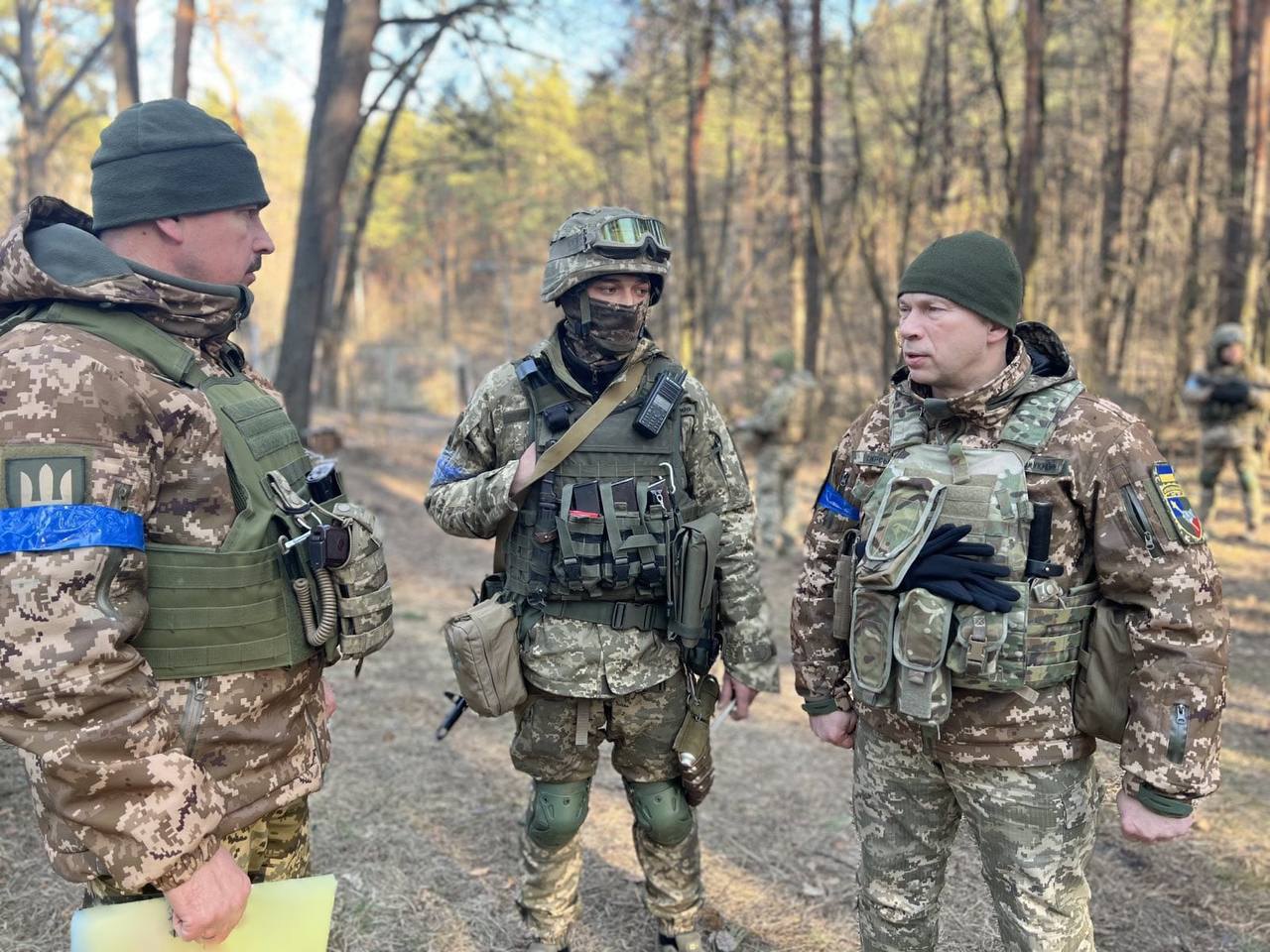
But here's what's important. Yesterday our military television published footage from there, people help us, we film there, in those territories, about the fierce resistance of our citizens. And this is something that should not just be shown, it is necessary, first of all, to admire these people, it is very difficult for them now, but they are doing it. It is necessary to show this example of how to behave if the territory is temporarily occupied, and the russians fail to do what they did in 2014 precisely because the state is doing its job.
O.B.: People who live there have the right to the truth and have the right to understand their prospects, whether they want to leave or stay, knowing that the occupation will last for some time.
You will understand, there can be no exact dates, exact promises of results. It is a constant dynamic process, it is a difficult complex struggle. And today it will be wrong to say exactly that tomorrow it will be so, so do so. Now the struggle continues.
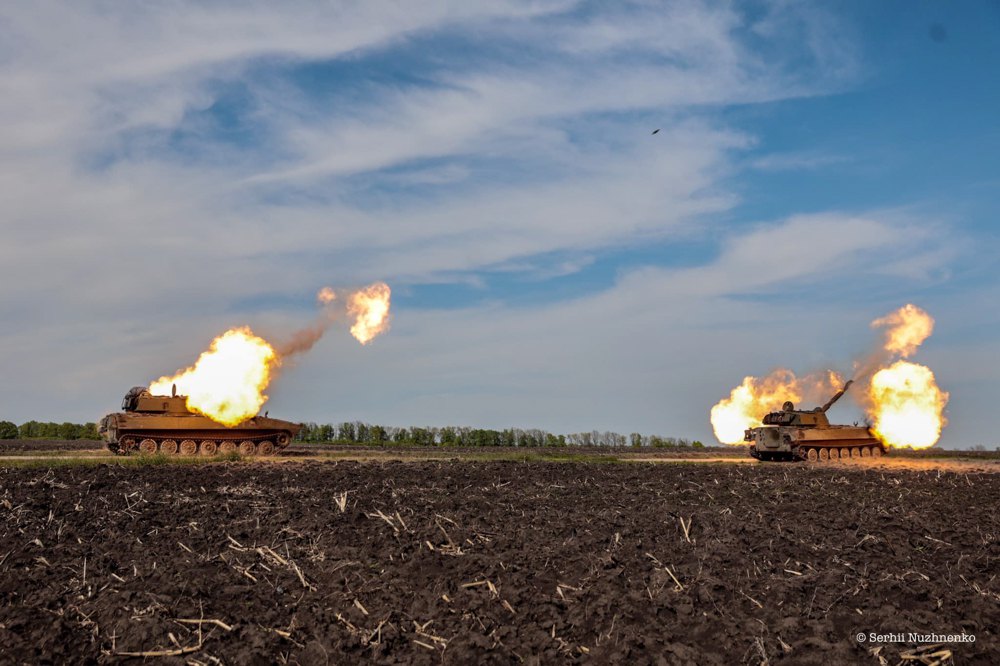
"Not only do they treat their dead this way, they treat their living this way"
S.K.: You are talking about more than 25,000 russians killed. This is more than the Soviet Union lost in Afghanistan in 10 years. We know that the russians simply do not recover the bodies of their dead, and when the issue arises in the negotiations and our people contact the other side, they say: we will not take anything, we have "no casualties". But we need to put these bodies somewhere, and you said that they can cause an environmental disaster in the spring because there are certain biological processes. So what should we do about them?
There are two parts of this problem. The first is purely moral, which exposes the putin regime. Not only do they treat their dead this way, they treat their living this way. I was in the places where they lived while capturing the north of Ukraine. They left behind, say, shoes, which were handed out to everyone in the same size. The same very inconvenient size! Here is such a small detail, but it speaks volumes. They robbed our people's clothes, did not fuss around, even took people's underwear, and left their own behind.
As for the dead. In the military community, the treatment of the dead is a certain subculture - and heroism, and constant remembrance, great respect. The russian army does not have this at all. And where we have been able to work with bodies, because we comply with international law, we do everything. But it is not possible to do this everywhere due to hostilities. And where there are heavy losses, disaster is already happening because these bodies are decomposing.
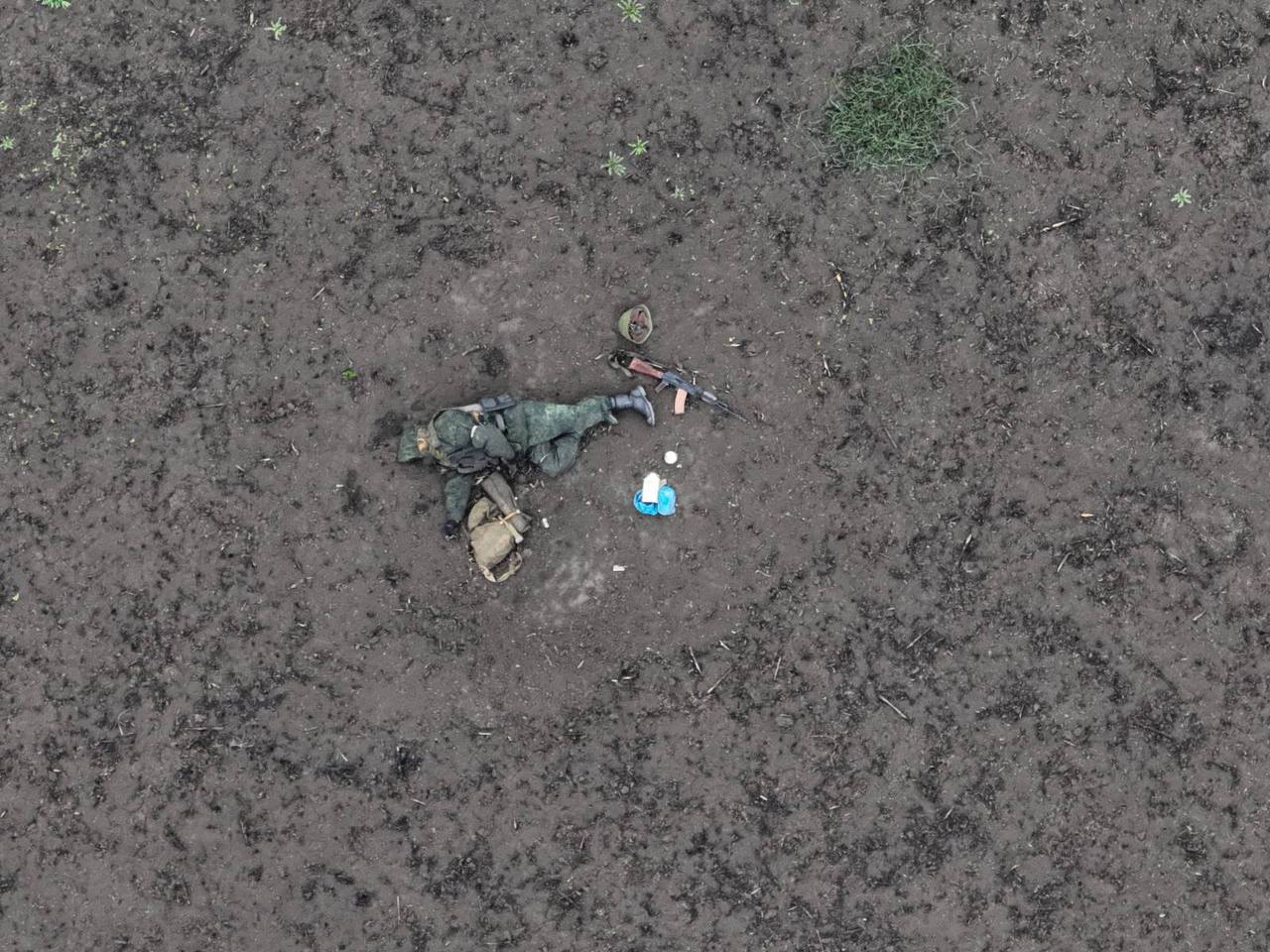
Unfortunately, there is no reaction to the bodies we store. For our part, we have done everything possible to provide contacts and information to the relatives of these victims so that they can raise the issue of appropriate burial with their authorities in russia.
The second component - these losses revealed their problem, which they seriously hid, concerning the availability of personnel. They have always said that this is an army of millions, and the losses have exposed the problem that in fact there is virtually no decent personnel. Therefore, they are now looking for ways to mobilise covertly. Due to the fact that this decision is extremely unpopular among the russians, they cannot announce the mobilization so as not to lose support. They did it discreetly but did not fulfill the plan even by 20%.
S.K.: At the beginning of the war, the Ministry of Defence together with the Ministry of Internal Affairs set up a hotline for russian mothers who are looking for their sons who were captured or killed here. What are the results of this hotline? Was it worth it?
Yes, it was. It was a very effective and efficient action, which, among other things, was written about by Western experts, because it was the first time we broke the information blockade in the russian federation and said that this is not just a special operation, as they say, but their husbands, their sons die here. It is important to understand that such information is extremely difficult to hide because you can shut down social networks, you can hold them all accountable for what they comment or swear, but they are our living agents of influence, because they are living mothers, living women whose husbands and sons are here. So, it was a huge breakthrough. In the first two days we had 8,000 calls, and we handled them together with the Ministry of the Internal Affairs. It was very effective, and we broke through this information blockade very successfully.
Now we have a completely civilized attitude towards prisoners. We provide information, if we are approached, about where the person is, whether he is alive or not among the dead, if we have such data, because we cannot identify all of them either. We behave in a very civilised manner, and this is also an important feature that distinguishes Ukraine from russia and the Ukrainian army from the russian one.
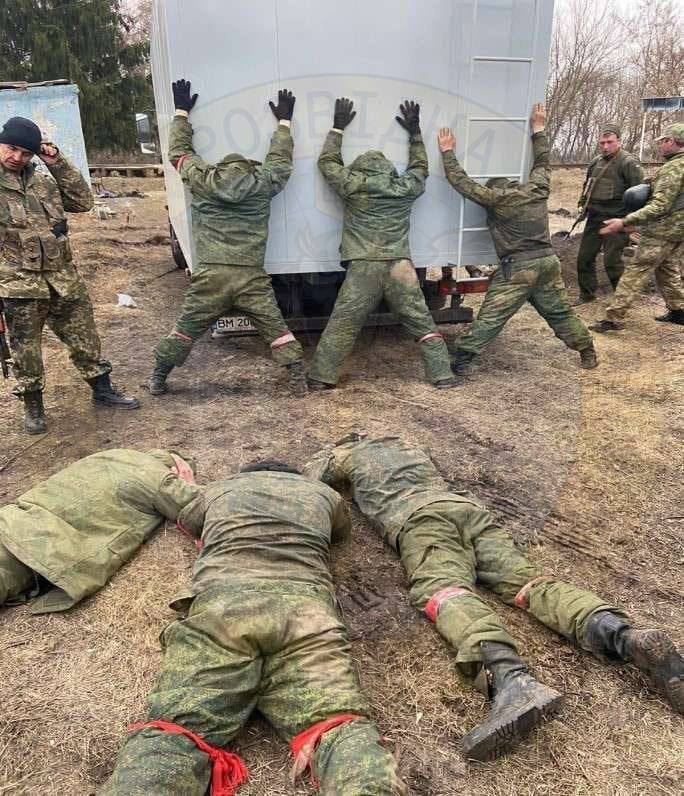
O.B.: How does the system of notifying the relatives of our fallen soldiers work now? And does the Ministry of Defence plan to set up special alert groups that exist, for example, in Israel or the United States?
We have the department of military-civil cooperation, they have always been involved in this, this is one of their scopes, and they are dealing with it.
O.B.: So the system works, no changes needed?
It is working. Everything related to notifications, psychologists, funeral assistance, all this has been worked out for a long time.
"We are ruthlessly fighting against people who pass information to russia"
O.B.: You are responsible for the information sector in the Ministry of Defence, and you said that we are the first in the world to build strategic communications during the war, and our experience is unique. What is unique about it?
For the first time and, by the way, very quickly, we have coordinated all the security agencies, all the security forces, and we are working as a single strong team in the information sector. We have never had such coordination before because reality did not require us to do so. Now we have to. Today, we are all constantly in communication, we have clearly divided areas of responsibiluty for information, who says what. Note that this is no longer the case that the SBU said something about something, and the Foreign Ministry, for example, stated something different on the same occasion.
We have a clear information defence strategy that my team and I are working on. We are creating this meaning - how we cover military issues. I rely in my decisions on what the General Staff in constant coordination with the Commander-in-Chief, of course, with the Chief of the General Staff, with the Deputy Commanders-in-Chief. People can't get used to the fact that we don't have a task to just inform. Nothing will happen to us at the front if we do not inform. Our task today is to fight by means of information, there are guns there, and there are guns here. Based on this general defence plan, what we are saying is an element of the entire defence of the state, and everyone should understand this.
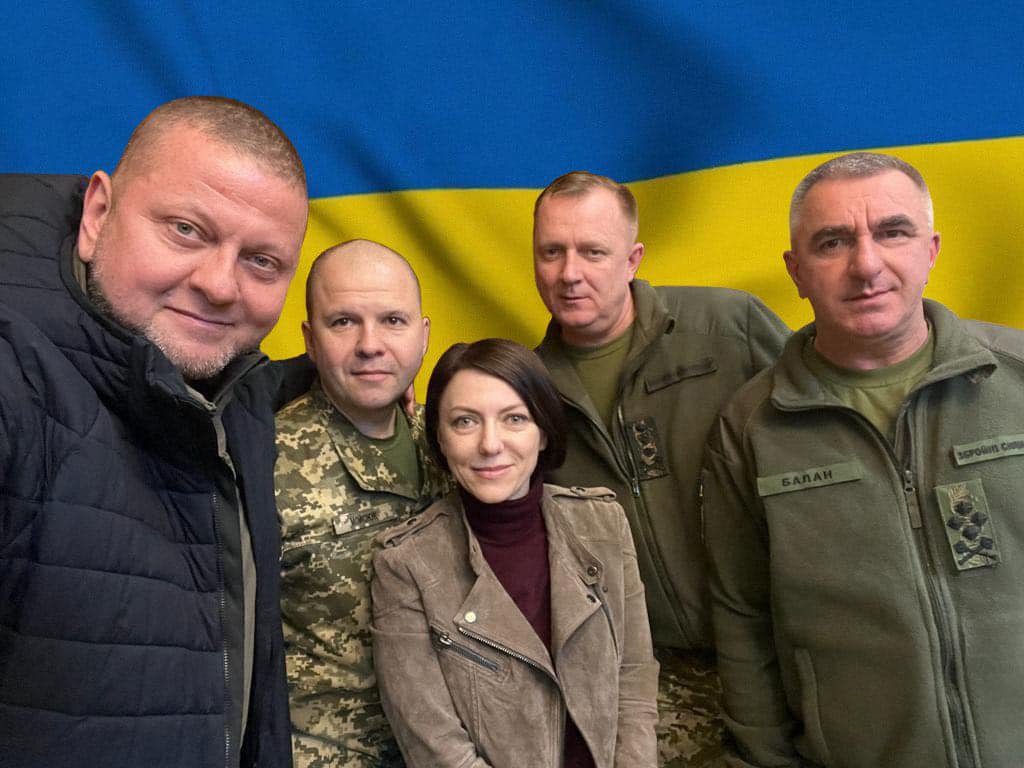
O.B.: Our war is probably the most media-friendly in the history of wars. Advanced means of communication in addition to the fact the war continues in an area where communication is almost ubiquitous. That is, in fact, an online war. And this, on the one hand, gives us certain advantages because the world sees what is happening, the russians can neither hide their crimes nor lie about them. On the other hand, we have constant problems which you have mentioned in particular. Does it make sense to impose legal restrictions, penalties or not?
We have imposed such restrictions. But I conducted two educational campaigns with our society, so when I thought about what to do and how to stop the flow of this information that the enemy uses to adjust the fire, I realized a simple thing: repression will not work. It is important simply to explain to all citizens why this shouldn’t be done.
If everyone is interested in victory, everyone understands that disseminating information simply delays the possibility of this victory, then any conscious person will not do it.
The first wave happened literally during the first or second week of the war, when we realized that officials, local authorities are sharing a lot of information. Why? Because they follow the old algorithm: the first to say wins. They have such a strategy. And plus they have to be honest with their constituents and they have tried to show that openness. What did we do? First, in our closed groups with heads of regional state administrations, with the government, we disseminated information, collected examples of what was made public and what it led to. For example, there are specific examples when one of the officials said that the airport was not hit and then the next two missiles did hit it. That is, he adjusted the fire.
We are ruthlessly fighting against people who pass information to russia, and therefore it is more and more difficult for them to obtain it. And they really get it from open sources, no mater how strange it may seem. We had a glaring case, I can't say exactly which one, so that the russians wouldn't understand. But they did not know about the situation because they did not get reports from below - it takes a few days for this to happen. But they learnt it thanks to our bloggers…
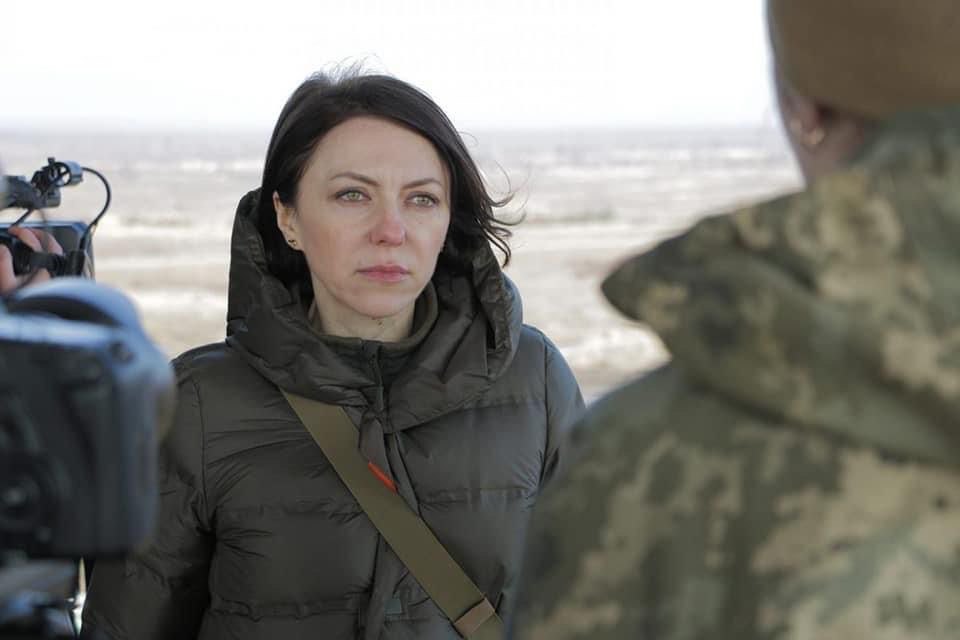
O.B.: Do you mean the story of Ruska Lozova?
We had a few stories.
O.B.: The story about Ruska Lozova was mentioned and you said that due to those who looked for "likes", a person was killed and 12 others were wounded. But the military was the first to announce the liberation of the village.
This is also a very serious problem at the tactical level, when the military wants to show their victory without understanding, without knowing the big general plan. For instance, if we take a settlement, it is extremely important for us to establish ourselves there first, and then to inform about it. But these selfies, this information, which one passed on to a blogger friend… We had two special operations in Chernihiv Region derailed due to this. The story with Lozova was the last straw, and I can't say it all, but wasn’t just the information about settlement, there was other information that should not have been leaked.
Therefore, it became clear that until we explain to people why this cannot be done so that they consciously choose to remain silent, nothing will happen. And this campaign, the first one involving local authorities, was actually successful, because now there are very few cases, after which I always personally call a person - be it a mayor, head of the regional state administration or an MP - and just explain it personally. The second is when we told bloggers that, with all due respect, with all the huge role they play in civil society, however, sometimes this (disclosure of sensitive information - LB.ua) harms the defence operation. There are no questions either, everyone understood that, and…
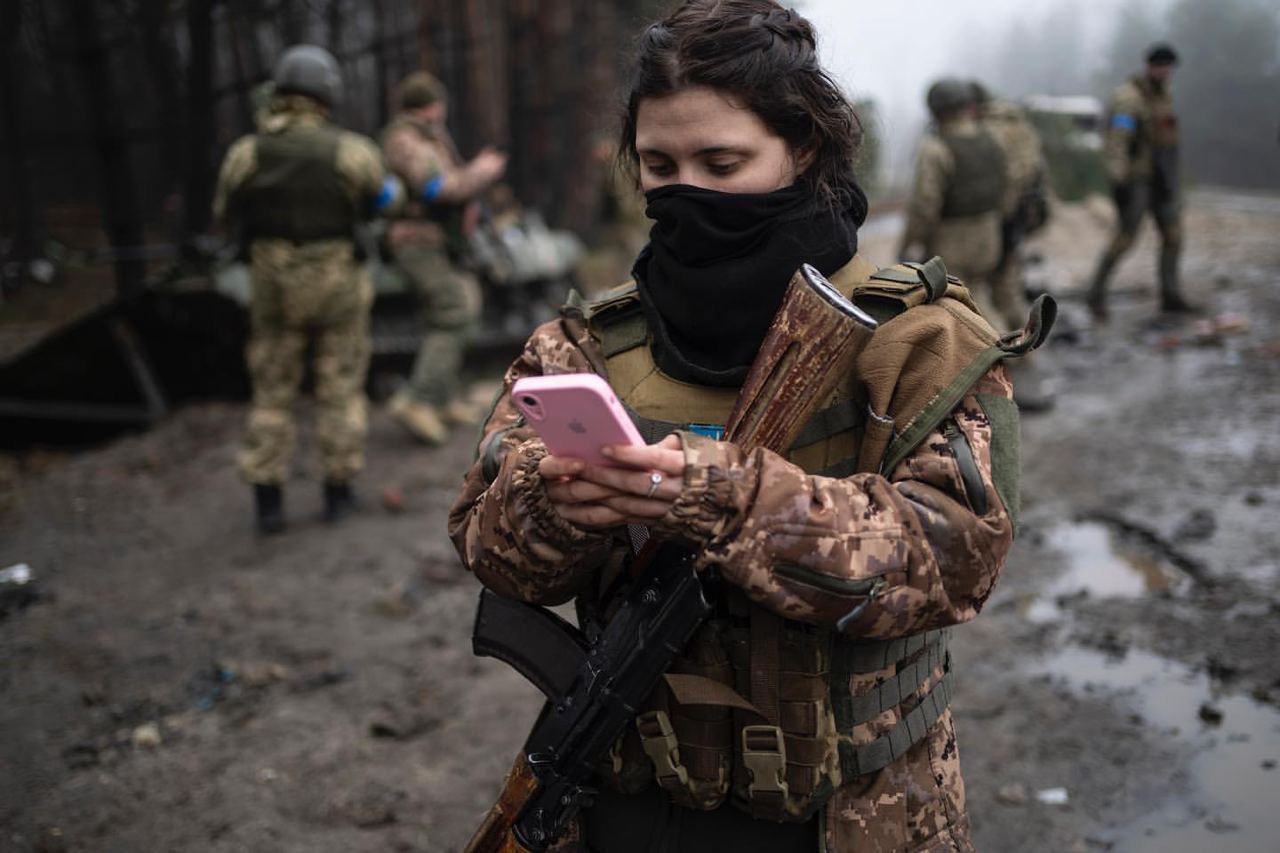
O.B.: I'm not sure everyone understood that. The video of the latest attack on the Shevchenkivskyy district in Kyiv, which we mentioned today, which was filmed at the actual site, was available in russian Telegram channels about 15 minutes later.
We can influence journalists, we can take away the accreditation, we actually do it regularly. We have developed rules, we have an order of the Commander-in-Chief, as it should be, they all get acquainted with him, only after that they get accreditation. Those who do not comply with them - we take away the accreditation, they can not make their materials. But we cannot influence with these repressive methods, take away the accreditation of an ordinary person who walked by and filmed everything with a phone. And here is where society should do a huge outreach work. And very often, when someone shares something like that now, people make critical comments, that is, the society is aware of the problem.
"Any footage and information about prisoners complicates the negotiation process"
O.B.: Usually, we don't report bad news. How correct is this, given that society still learns this news, but unfortunately does it from the Western media at best or usually from the russian ones, which present it accordingly?
There is some information that is a state secret. If we talk, for example, about our losses, it is not related to this war, it is the rules of tsate secrets that were established long before 24 February. Until the end of the war, this information is classified. Who can tell it? Well, there is a circle of people, and I know who is involved, and who is responsible, we must understand this. There are mechanisms for declassification, so if it is declassified, then someone let it out.
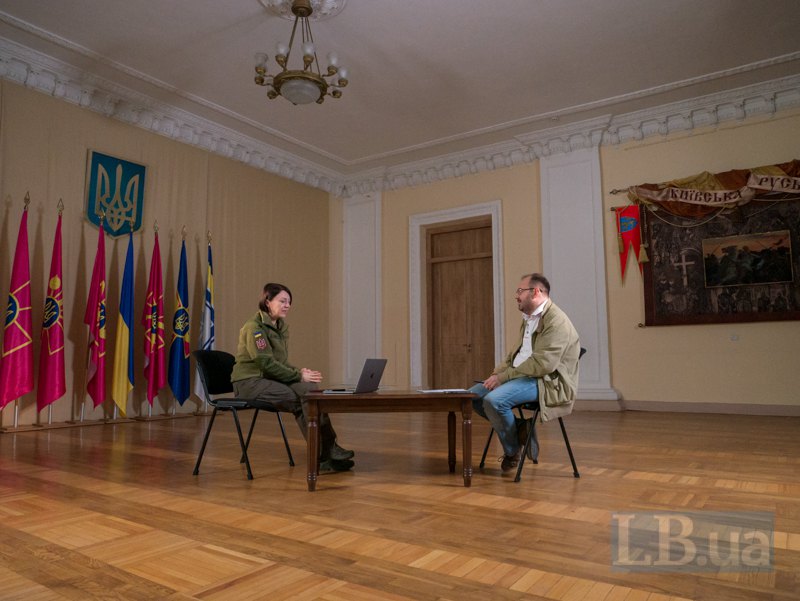
O.B.: It's not just about losses. For example, when we talk about prisoners, russians show footage…
Any footage and information about the prisoners complicates the negotiation process. There are people who want to make a huge information campaign in support of a particular prisoner to ensure their release. So, I want to take this opportunity to say that it will do this person a disservice eventually. This will not only complicate the process, it will lead to worse conditions for us to exchange than we have now. Here you have to trust only the special services, which deal with the issue at the first level, then the Ministry of Reintegration is negotiating, you know, our whole structure is formed in accordance with the Geneva Conventions. And any public intervention prevents us from returning our people.
O.B.: I had a slightly different issue in mind. When the russians say we have taken a number of Ukrainians captive today, while our Ministry of Defence or Armed Forces are simply silent.
Correct.
O.B.: That is, we do not say yes or no. We are just silent. Then again, we live in the information world, people still get this information, but they get it from the enemy, prepared in a certain way.
You are now speaking again in the context of the information field, forgetting that our key goal is to win the war. The situation on a battlefield doesn't change depending on whether three or 30 people know.
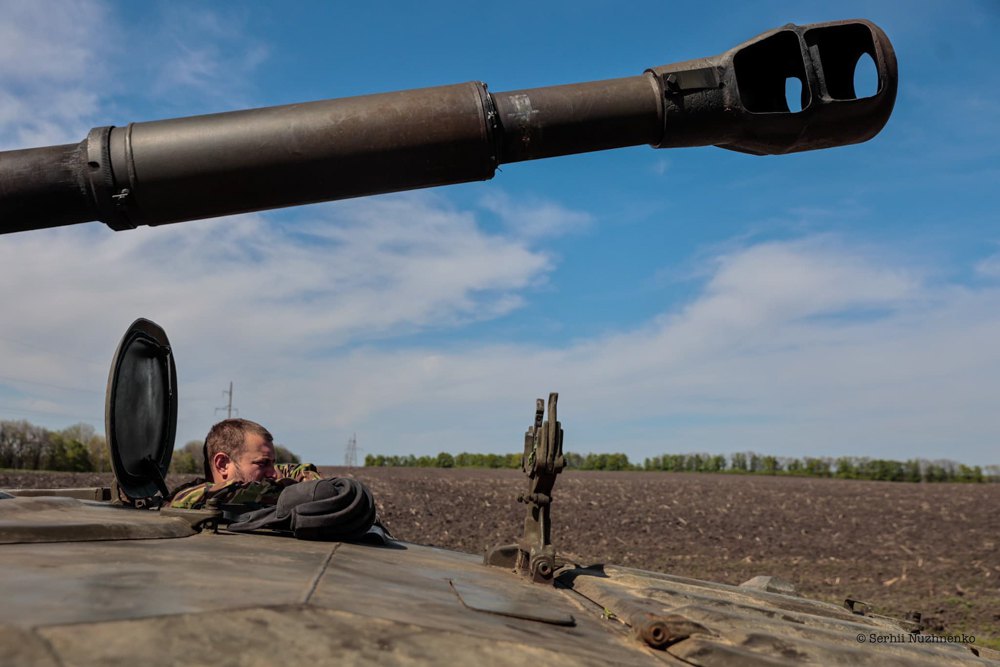
O.B.: It seems to me that this is how russian propaganda works more effectively.
No, it works effectively on its territory. In our country, they suffered a complete fiasco. Their sources of information are not among the favourites here. Believe me, they already have a lot of different fiascos in their field, which we will talk about after the victory, it's not so simple there either. Confidence in this information is also very low there today.
As for the captives. This is very sensitive information. Now (a conversation took place on Saturday, 7 May - LB.ua) a certain process is underway in Mariupol to ensure a release of civilians. And there is such a sensitive topic that any information that is released officially here, it immediately pops up in the negotiation process with the russian side. This must be comprehended. We lead this careful information policy, taking care of the security of each of these people, taking care of the security of the state. It is in the interests of the state not to be the first to report.
O.B.: It is not a question of being the first to report, it is a matter of informing in principle that a person should not draw information from russian sources or from allegedly independent ones.
Here you need to decide. It is important for us to get information now and we will lose something there now, in this particular situation, or we will not have this information for some time…
We have provided a phone number to relatives, who have information that their relatives are in captivity, we are working with them. It is important for us to work with these people in the first place. It is important for us to release all our people, and we are doing everything we can to do that. Believe me, all resources are engaged, and this process, finally, unlike in 2014-15, is completely mediated by the Red Cross, it is completely open, transparent. At the same time, Russia is already doing its thing. And that is why we pursue information policies in the interests of the state. Not every individual who is just interested in knowing, but in the interests of the state.
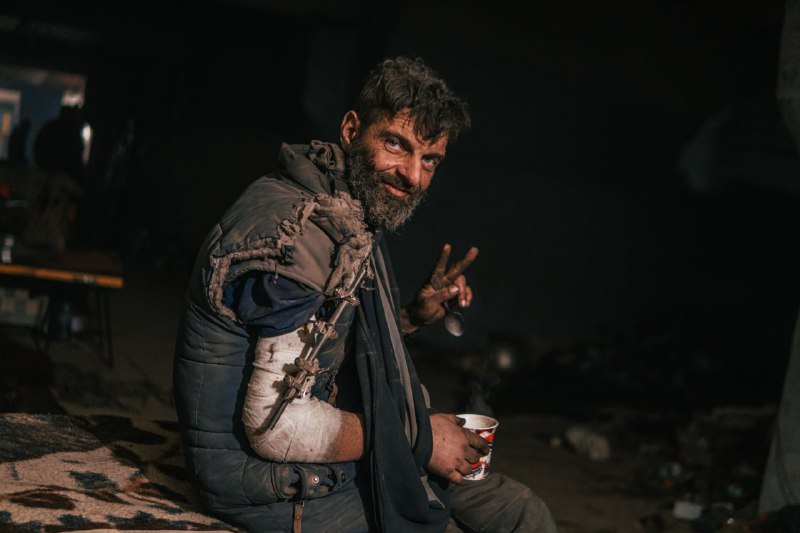
"I believe that there should be no Russians on the air, neither good nor bad"
O.B.: On 5 May, Oleksiy Arestovych announced that the Ukrainian military had driven the Russians out of the Azovstal plant. Literally in an hour or two there was a refutation from the representatives of the Azov Regiment, who are fighting there, that they did not knock out anyone, the fighting continues. And I think, how did the people who are there, how did they feel hearing lies from a representative of the Ukrainian government? Was there any point in that other than to say something positive to the audience?
This is what they need to ask.
O.B.: I understand, but why is it done? An official representative of Ukraine comes out and says: everything is fine there, they fought back. And they're fighting right now.
You should ask him this too.
O.B.: Then one more question, with your permission, about the information component as well. Your quote: "Pro-opposition russians have been used for information work against us from the very beginning. At first, they allegedly share the pain of Ukraine, criticize putin, you start believing them, and then they start pouring poison." Great, I sign up for every word, it's true. And how do you feel about the fact that our national TV marathon constantly features so-called "good russians"? It seems that we can't do without them.
I do not support this position, I expressed it both publicly and personally to everyone who could express it.
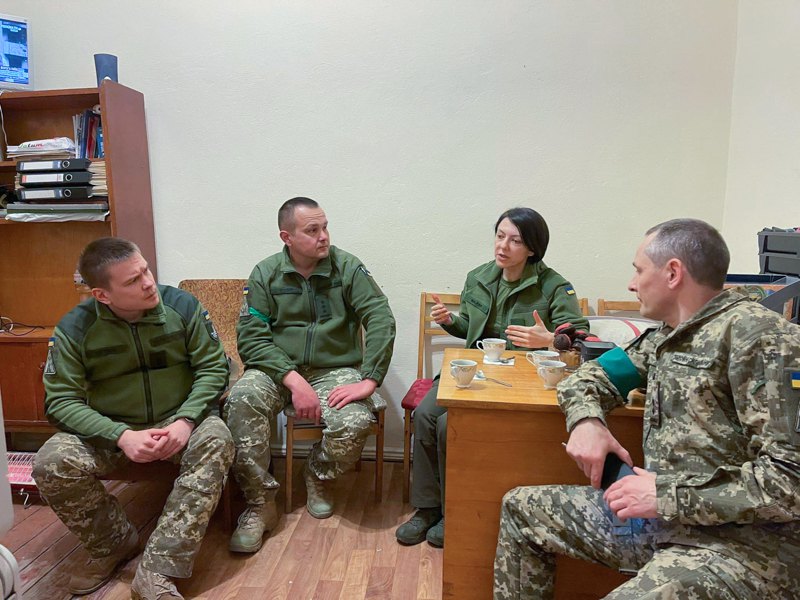
O.B.: And the fact that Oleksiy Arestovych sums up the combat situation every night on the YouTube channel of Feygin, another "good russian"?
You may ask Oleksiy about it.
O.B.: So I will, but how do you feel about that? Every night, I, a person who works with the news, see the message: Arestovych said this and that. I go and watch: he said it on the air of Feygin, a russian YouTuber.
Despite the fact that we are at war, some people still think that we live in a democratic society, and they have their own views on the russians. In this sense, I cannot act as an individual. From the point of view of information security of the state, I will say about my sphere: I believe that there should be no russians on the air today - neither good nor bad. I believe that there are people out there who sincerely support us. So many people write to me who have not spoken to me since the age of 14 because of differences of opinion, they are now writing, apologizing for something about their president… I understand all this, but the FSB will use them all - and those who sincerely pity us, and sympathizes, and they are used. And then they will bring here some information infection. Therefore, in terms of security, they should not be [on air].
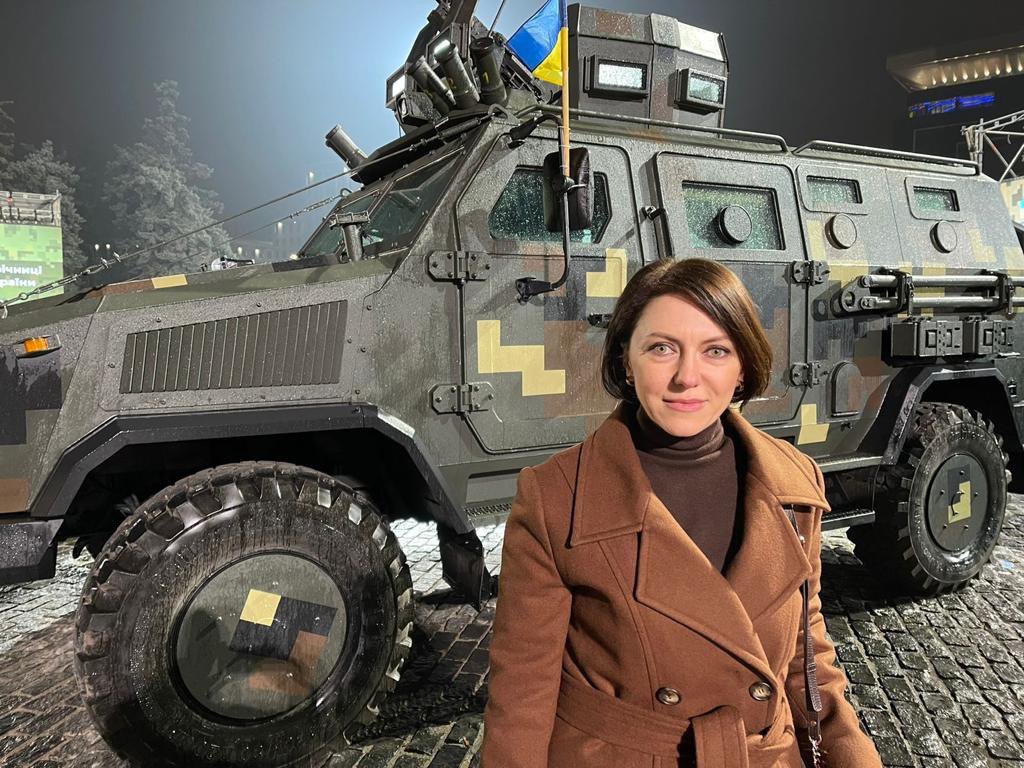
"We have an absolutely clear chance to finally crown this historic moment with our victory"
O.B.: You once received special training on negotiations in armed conflicts.
In armed conflicts, and in addition, I also took courses in negotiation in language conflicts. That is, this story is Ukrainian, it has been researched, and we have really been taught, the Dutch Institute of International Relations Klingendal, which teaches negotiators for the whole world, for all hot areas.
There is a certain technique of holding negotiations to achieve a certain result for both parties. And here is bad news for Ukrainians: any negotiations are certain agreements. If there is a war, then there are no concessions. And this must be understood. And in this situation, this technique is virtually impossible to use, because russia has crossed absolutely all lines, they actually brought the Minsk process to a standstill, and now all the lines have been crossed so much that now - only war. It is difficult to imagine how this can be completed.
O.B.: From what you were taught in the Netherlands, can you negotiate with the russians in principle?
We were trained, by the way, not on mannequins, but in "field" conditions - there were groups of russian citizens. And then we did not get to agreement. It was a long training, not one hour, not a day, and we could not agree on our issues, this hot phase was not there yet.
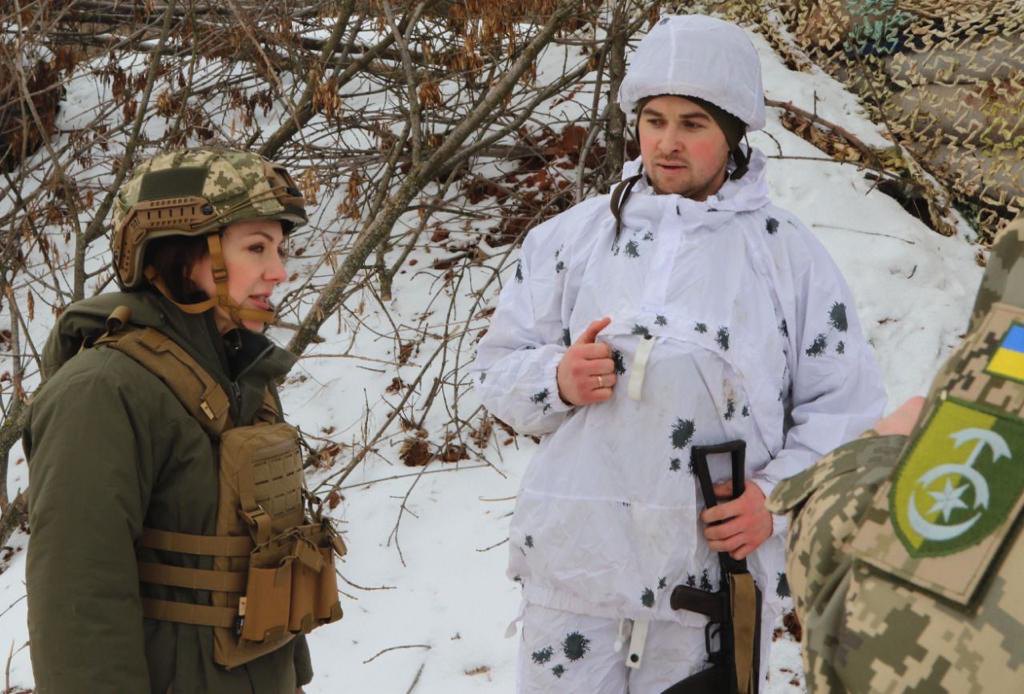
The Dutch were researching why we could not agree. Because any problems between different actors are formed at the level of needs. And then the Dutch - and the world's most famous institution that trains negotiators, they themselves are negotiators in almost all hot conflicts - expressed the following position: Ukrainians have a key need for security, and everything that happens on the part of russia, they perceive as a threat to their state and security. And until this need is met, everything will come to a standstill. And the russians have a huge internal need for dominance. And so far they are not ready to be equal, nor, moreover, to accept that they are not the older brother.
This dominance, by the way, lies in the language problem, because for them the loss of the russian language here is a loss of dominance, they dominated because of it. And this difference, if we move away from politics, from everything, and immerse ourselves in the middle, in the essence of these problems, they are that we have different needs, and we will not find a common language.
S.K.: So the war can only end in our victory, we understand correctly?
Definitely. And putin makes it very clear that despite the development of Western civilization, human rights, this equality, despite the fact that the world is ruled by law, not power, he shows everyone now: no, everyone must be strong in order to preserve themselves. In this case, the stronger one wins. And now we have absolutely clear chances to crown this historic moment with our victory.
